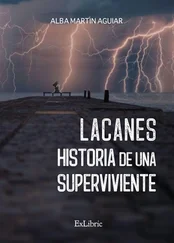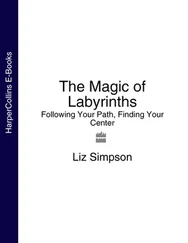After the flood, Noah planted a vineyard, became drunk with wine and uncovered himself. His son, Ham, dishonoured his father by not covering his father’s nakedness, and Noah cursed him.
‘Cursed be Canaan; a servant of servants he shall be to his brethren … Blessed be the Lord, the God of Shem, and may Canaan be his servant. May God enlarge Japheth and may he dwell in the tents of Shem; and may Canaan be his servants.’
Genesis 9.26-27
God made Shem the head of his brothers and the carrier of the promised seed, family blessing, and promise, and Ham the least.
Canaan was the fourth son of Ham (Genesis 10.6). So, the curse of Ham was to be fulfilled in the life of Canaan and his descendants. The descendants of Shem would have to wait until the iniquity of the Amorites (seed of Ham) was full and ready for judgement before the blessing of Shem could be realised (Genesis 15.16).
According to the Scripture the sons of Ham were Cush (Sudanese and Ethiopians), Mizraim (Egyptians), Put (Lybians) and Canaan (Sidonians, Hittites, Jebusites, Amorites, Girgashites, Hivites, Arkites, Sinites, Arvadites, Zemarites and the Hamathites) (Genesis 10.6, 15-18). All the people who lived on the land of Canaan, which God gave to the descendants of Shem, were the descendants of Canaan. The land of Canaan was the very place the Nephilim, the mighty men and the men of renown, reappeared, so they might have been connected to the descendants of Ham.
Noah was 500 years old when he begot his three sons, Shem, Ham and Japheth (Gen 5.32). He was 600 years old when the flood came (Genesis 7.6). So, for about 100 years Noah was building the ark and preaching righteousness. The Bible indicates that the divine longsuffering waited while the ark was being prepared, but only eight people were saved from the water of judgement, the family of Noah, even though there was a Voice in the wilderness calling all the people to repentance for about 100 years (1 Peter 3.20).
Noah heard the same Voice Adam heard and Enoch heard in the garden in Eden and also became a teacher and preacher of righteousness. ‘Repent, turn to the Lord. Change your ways. Change your image. Judgement is coming. The Lord is gracious, He will pardon, He will forgive if you turn to Him again.’ Elijah cried in his day, ‘How long will you falter between two opinions? If the Lord is God, follow Him; but if Baal follow him …’ (1 Kings 18.21).
Why did the people not listen to Noah? First, the tree of the knowledge of good and evil had conditioned them to look at things around them only from the natural and the flesh’s point of view. What is this old man talking about? His mind is not working properly. Everything seems alright. Why is he talking about rain and judgement?
The same attitude is still with us. Peter said, ‘Knowing this first; that scoffers will come in the last days, walking according to their own lust and saying, ‘Where is the promise of His coming?’ For since the fathers fell asleep, all things continue as they were from the beginning of creation. For this they wilfully forget that by the word of God the heavens were of old …’ (2 Peter 3.3-4).
Secondly, the people in Noah’s day didn’t approach the message with humility and faith. They could not believe that there would be such a rain and flood. It seemed so unnatural and unrealistic. Thirdly, they continued with the rebellious nature of Adam. Fourthly, their culture had changed; their identity had nothing to do with God; fifth and finally, there were powerful sources, mighty men and the men of renown at the background, releasing demonic powers to enslave the people in their flesh. All these things are happening in our time.
‘As it was in the days of Noah, so it will be also in the days of the son of Man. They ate, they drank, they married wives, they were given in marriage until the day that Noah entered the ark, and the flood came and destroyed them.’ In the last days there will also be powerful, corrupt, demonically inspired entities, hybrids, serpentine seed or reptilian seed, who will work hard to control and enslave mankind in his flesh and sin; who will teach mankind ways of destruction and violence. Some of these entities are with us today. What do you think is the origin of the rise of sexual promiscuity, homosexuality, gay marriages, occultism, witchcraft, and abortion? All these things have been introduced demonically into our society and all of them have crept into the normal church life of today.
The ark in which Noah’s family was saved was a means to their salvation and therefore a shadow of Christ. ‘But of Him you are in Christ Jesus, who became for us wisdom from God – and righteousness and sanctification and redemption.’ (1 Corinthians 1.30)
After the flood judgement, the first thing Noah did was to build an altar and sacrifice of the clean animals as burnt offering to the Lord. ‘Then Noah built an altar to the Lord, and took of every clean animal and every clean bird, and offered burnt offerings on the altar.’ (Genesis 8.20).
Each of the clean species of animals was precious and the only surviving ones on earth. Noah could have expressed his thankfulness in many ways other than sacrificing the surviving clean animals. Like Abel, Noah was righteous and acted in faith. He knew God is most holy and worthy of the best. He knew he could not please God, worship Him and have access to God any other way except through the blood sacrifice. The sacrifices of Abel and Noah were shadows of the sacrifice of Jesus Christ.
God was pleased with what Noah did. ‘And the Lord smelled a soothing aroma. Then the Lord said, ‘I will never again curse the ground for man’s sake … nor will I again destroy every living thing as I have done.’’ (Genesis 8.21-22). He blessed Noah and his household; ‘Be fruitful and multiply and fill the earth.’ (Genesis 9.2). Through Noah’s family the world became populated again. But man, in his fallen state, continued in sin and depended on the tree of the knowledge of good and evil and not on the Spirit of God.
There was a need for a new group of people or race which will have close relationship and communion with God in order for God’s purpose and will to be fulfilled on earth. God’s sovereign choice fell on Abram, a descendant of Shem, to whom the promise was given. Abram was the 21st patriarch after Adam. God appeared to Abram in the pagan city of ‘Ur of the Chaldees’ in Mesopotamia (Genesis 11.31, Acts 7.2) and commanded him to leave his country and family to a place He would show him, and He would make him a great nation and through him all the families of the earth would be blessed (Genesis 12.1-3). Abram and family obeyed God and travelled over a thousand miles, through Haran and Damascus, to the land of Canaan.
‘Brethren and fathers, listen: The God of glory appeared to our father Abraham when he was in Mesopotamia, before he dwelt in Haran, and said to him, ‘Get out of your country and from your relatives, and come to a land that I will show you.’ Then he came out of the land of the Chaldeans and dwelt in Haran. And from there, when his father was dead, He moved him to this land in which you now dwell.’
Acts 7.2-4
Stephen revealed that God called Abraham and gave him the promise when he was serving idols and living in the Ur of the Chaldees. Abram was to begin a new life, a new season, and birth a new godly nation through whom the divine promise, the seed of the woman who would bless the whole world, would come forth. In that completely new setting Abram had to forsake everything; his home, his family, his people, his culture and his country. He had to cut off from his past and all of its influences. He could not bring any of them into his new life.
The wife of Abram, Sarai, was barren and could not give birth to a son in Ur of the Chaldees. Ten years after the promise of God to Abram and Sarai, they were still without the promised son. When Abram complained, God told him to look at the stars. ‘So shall your descendants be.’ And Abram believed the Lord and He accounted it to him for righteousness” (Gen 15.5-6). Abraham walked in great faith; leaving his country and family to an unknown destination and by offering his promised son, Isaac, as a sacrifice to God (Hebrews 11.8, Hebrews 11.17). He became the father of faith both for the circumcised and the uncircumcised; the Jews, the church and the Gentiles.
Читать дальше












